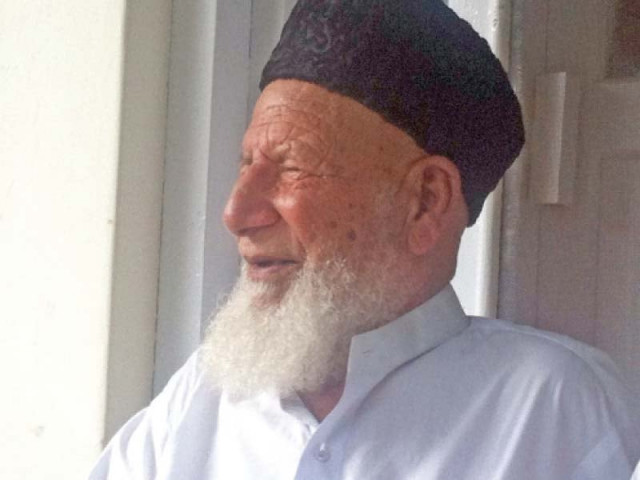Footprints in time: The lure of Jinnah’s legacy
Quaid’s perseverance provides model to emulate, says Qazi Ghufranuddin.

Qazi Ghufranuddin PHOTO: EXPRESS
The memory of this encounter has not blurred with time. Now in his 90s, Ghufranuddin recalls the meeting with precision. He was deeply inspired by Jinnah’s rectitude and integrity in his maiden meeting.
“On that particular day, Jinnah was wearing a brown suit,” he tells The Express Tribune. “He was smoking a cigarette and talking to my teacher, Mufti Kifayatullah, at his seminary Darul Uloom Fatehpuri. It was then that I realised what a remarkable person he was.”
According to Ghufranuddin, Kifayatullah did not agree with Jinnah in his decision to incorporate Bangladesh into Pakistan and leave Delhi with India. On the contrary, he believed Bangladesh should only be claimed once Delhi is made part of the country.
“Even though I respected my teacher a great deal and agreed with his viewpoint, I found myself on Jinnah’s side,” he says.
Ghufranuddin explains the main objective of the Pakistan movement was to carve a separate homeland for Muslims in the subcontinent. “However, clerics in Congress and Pakistan Muslim League had a different view,” he recalls. “Nevertheless, Jinnah remained steadfast, strong and persistent. His perseverance made a lasting impression on me. At that time, I wanted to become just like Quaid-e-Azam.”
Ghufranuddin has carried the seeds of his desire throughout his life.
Rewind
Born in 1920 in Nawa Kalay on the outskirts of Mingora city, Ghufranuddin began his schooling at the age of four at Wadudia School, Kokarai. He later went to Delhi at the age of 12 to gain higher religious education from a notable Muslim cleric who was actively involved in the struggle for independence.
When Pakistan gained independence in 1947, Ghufranuddin had left the seminary and was teaching at the newly established Government High School in Banrh for a salary of Rs75 per month.
“This was a huge amount of money back then,” he says. “However, I later discovered teaching wasn’t my cup of tea and decided to quit. At that time, the Wali of Swat Abdul Wadud Badshah Sahib appointed me first as Qazi of Swat and soon after, as Nazim Riyast-e-Swat which meant I had to evaluate all the decisions taken by judges throughout the state including Kohistan, Buner and Shangla.”
Beyond turmoil
In 1969, Ghufranuddin was appointed Qaziul Qaza (chief justice) of Swat when it was merged with Pakistan.
Nevertheless, Ghufranuddin still believes in the aspirations Jinnah had for the country.
“Jinnah managed to achieve the dream of Pakistan with unflinching resolve,” he says. “I respect his struggle. That’s why I have not left the country event though I have received offers to join judicial systems of other countries.
Published in The Express Tribune, August 14th, 2015.













COMMENTS
Comments are moderated and generally will be posted if they are on-topic and not abusive.
For more information, please see our Comments FAQ